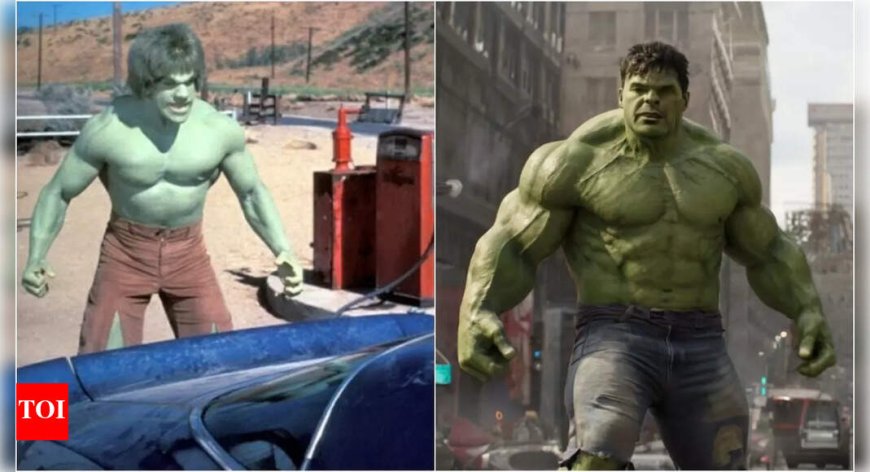Why did the 'The Hulk' films fail? Kenneth Johnson feels THIS is the reason
Kenneth Johnson's 'Incredible Hulk' TV series focused on character. He criticized Hulk films for CGI reliance. He felt it disconnected audiences. The 2003 film's box office suffered. Johnson believes Hulk worked in 'The Avengers' due to the ensemble setting. A line from the TV show resonated at the 2003 premiere.

Why Did the 'The Hulk' Films Fail? Kenneth Johnson Feels THIS is the Reason
In the realm of superhero movies, few characters are as iconic as The Hulk. However, despite the character’s immense popularity in comic books and television, the film adaptations have often struggled to resonate with audiences. One notable voice in this discussion is that of Kenneth Johnson, the director of the acclaimed 1970s television series 'The Incredible Hulk.' According to Johnson, several key factors contributed to the failure of The Hulk films, and he shares his insights passionately.
Understanding the Issues Behind the Film Adaptations
Many fans have questioned why The Hulk films, particularly the earlier adaptations, did not achieve the same level of success as other superhero franchises. Kenneth Johnson suggests that a core problem lies in the handling of the character's duality. The essence of Bruce Banner and The Hulk’s dynamic needs to be treated with depth. Instead of exploring their tumultuous relationship, previous films often sidelined this crucial aspect, leading to a lack of emotional investment from the audience.
The Complexity of The Hulk's Character
Johnson emphasizes that The Hulk is not just a giant green monster; he is a tortured soul battling his inner demons. This complexity should have been central to the films, yet many adaptations opted for flashy CGI over character development. For audiences to connect with The Hulk, they need to understand Bruce Banner's struggles and his journey towards self-acceptance.
Audience Expectations and Cinematic Trends
The superhero film genre has evolved significantly over the past two decades. Johnson notes that early attempts to portray The Hulk came during a time when audiences were not yet accustomed to CGI-heavy narratives and large-scale comic adaptations. This misalignment of expectations may have contributed to their reception. Modern audiences are better equipped to appreciate character-driven storytelling interspersed with action, a balance that early Hulk films failed to achieve.
The Path Forward: Learning from the Past
To create a successful Hulk film, Johnson advocates for a return to the character's roots. This should include a strong focus on narrative depth, character exploration, and emotional resonance. The Hulk's story is inherently compelling, and filmmakers need to tap into this potential fully. By honoring the complexity of Bruce Banner and The Hulk, future adaptations might finally deliver the blockbuster success that eluded previous films.
As discussions about superhero films continue to evolve, Kenneth Johnson's perspective on The Hulk adaptations offers valuable lessons for filmmakers. Engaging storytelling combined with character depth could pave the way for a new era of success for the beloved green giant.
For more updates on film analysis and trends, visit dharmyuddh.com. Keywords: The Hulk movies failure reasons, Kenneth Johnson Hulk insights, why The Hulk films did not succeed, mistakes in Hulk film adaptations, character depth in superhero movies, Bruce Banner and The Hulk relationship, understanding The Hulk's character complexity, superhero film evolution, Bruce Banner Hulk emotional struggles, cinematic trends influencing The Hulk films.







